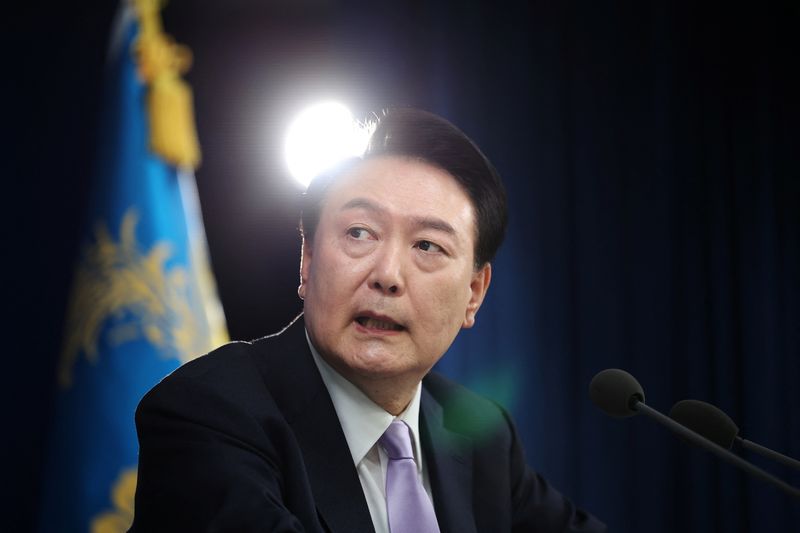By Joyce Lee and Josh Smith
SEOUL (Reuters) - South Korean President Yoon Suk Yeol recently began practicing golf, for the first time in eight years, in preparation for future meetings with U.S. President-elect Donald Trump, Yoon's office confirmed on Tuesday.
South Korean media said Yoon visited a golf course on Saturday for a sport his office said he had last played in 2016.
"A lot of people close to President Trump... (told me) President Yoon and Trump will have good chemistry," Yoon told a press conference on Thursday, after congratulating Trump by telephone on his win.
Former Trump administration officials and influential Republicans had offered to help build ties with the incoming president, he added.
Analysts said Yoon may seek to find a way to capitalise on a personal friendship with Trump to advance Seoul's interests as Trump's "America First" foreign policy plans and his unpredictable style play out in his second term.
South Korean companies rely heavily on trade with the United States, and during Trump's first term, the countries clashed over cost-sharing for the roughly 28,500 U.S. troops stationed in South Korea as a legacy of the 1950-1953 Korean War.
Officials in Seoul have been working to prepare for significant economic change, while Yoon called on Sunday for government and industry talks to prepare for Trump's return.
The similar personalities and outsider approaches of Trump and Yoon may help them get along, said Ramon Pacheco Pardo, a specialist in Korean affairs at King's College London.
"I also think that Yoon is generally well-liked by policy-makers in the United States, which will help him, whoever advises Trump on foreign policy," he added.
Bruce Klingner, of the Heritage Foundation in Washington, agreed that the two could develop a strong relationship but warned it might not be sufficient to spare South Korea from negative impacts.

"While many leaders will seek to replicate the friendship that Shinzo Abe had with Trump, there is no evidence that personal relationship resulted in any tangible, demonstrative benefits for Japan," the former CIA analyst added, referring to the assassinated former Japanese prime minister.
Tokyo was treated the same as Seoul in contentious talks on military cost-sharing, he added.